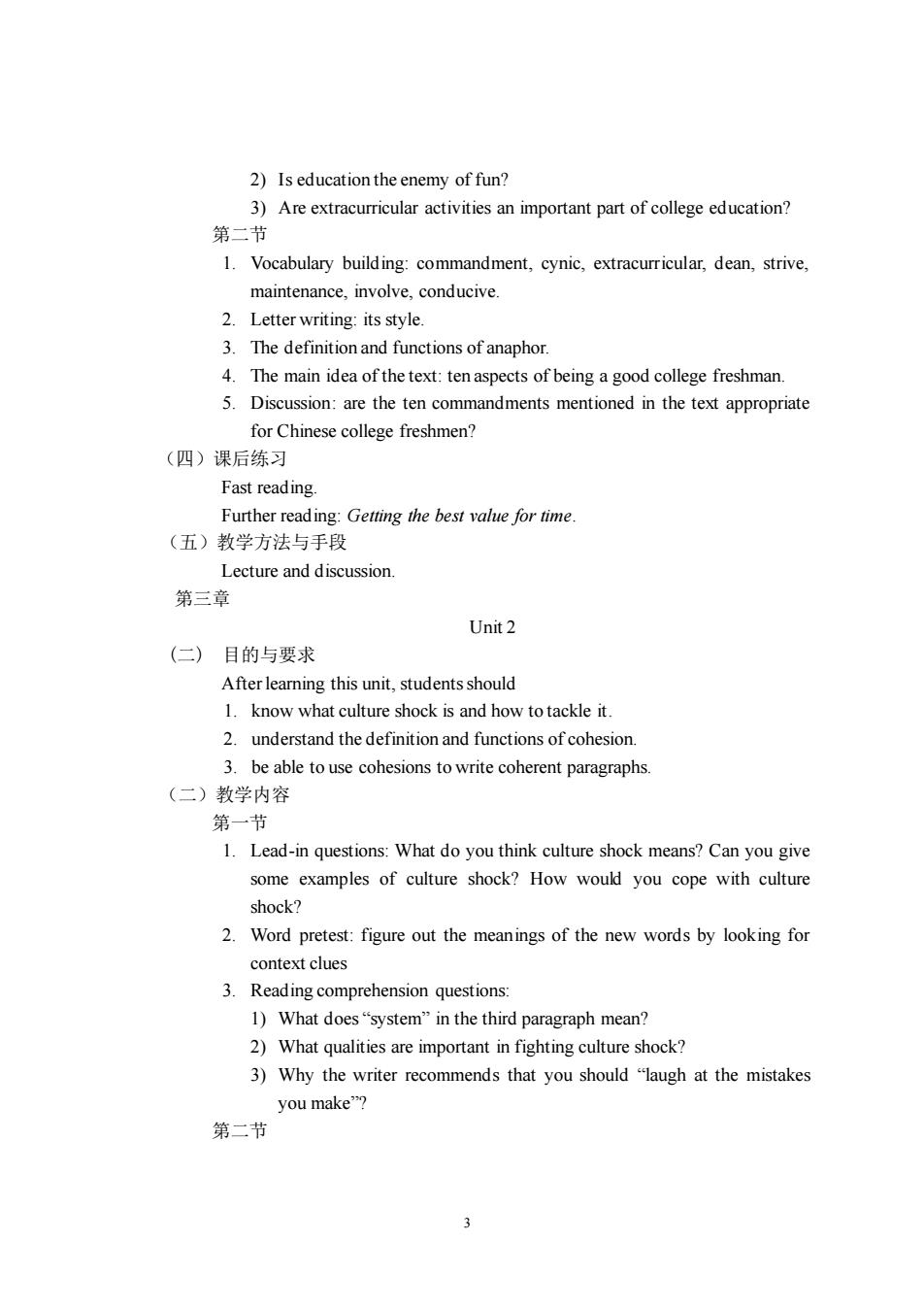正在加载图片...

2)Is education the enemy of fun? 3)Are extracurricular activities an important part of college education? 第二节 1.Vocabulary building:commandment,cynic,extracurricular,dean,strive. maintenance,involve,conducive. 2.Letter writing:its style. 3.The definition and functions of anaphor 4.The main idea of the text:ten aspects of being a good college freshman. 5.Discussion:are the ten commandments mentioned in the text appropriate for Chinese college freshmen? (四)课后练习 Fast reading Further reading:Getting the best value for time (五)教学方法与手段 Lecture and discussion 第三章 Unit2 (二)目的与要求 After leaming this unit,students should 1.know what culture shock is and how to tackle it. 2.understand the definition and functions of cohesion 3.be able to use cohesions to write coherent paragraphs (二)教学内容 第一节 1.Lead-in questions:What do you think culture shock means?Can you give some examples of culture shock?How would you cope with culture shock? 2.Word pretest:figure out the meanings of the new words by looking for context clues 3.Reading comprehension questions: 1)What does"system"in the third paragraph mean? 2)What qualities are important in fighting culture shock? 3)Why the writer recommends that you should "laugh at the mistakes you make"? 第二节 33 2) Is education the enemy of fun? 3) Are extracurricular activities an important part of college education? 第二节 1. Vocabulary building: commandment, cynic, extracurricular, dean, strive, maintenance, involve, conducive. 2. Letter writing: its style. 3. The definition and functions of anaphor. 4. The main idea of the text: ten aspects of being a good college freshman. 5. Discussion: are the ten commandments mentioned in the text appropriate for Chinese college freshmen? (四)课后练习 Fast reading. Further reading: Getting the best value for time. (五)教学方法与手段 Lecture and discussion. 第三章 Unit 2 (二) 目的与要求 After learning this unit, students should 1. know what culture shock is and how to tackle it. 2. understand the definition and functions of cohesion. 3. be able to use cohesions to write coherent paragraphs. (二)教学内容 第一节 1. Lead-in questions: What do you think culture shock means? Can you give some examples of culture shock? How would you cope with culture shock? 2. Word pretest: figure out the meanings of the new words by looking for context clues 3. Reading comprehension questions: 1) What does “system” in the third paragraph mean? 2) What qualities are important in fighting culture shock? 3) Why the writer recommends that you should “laugh at the mistakes you make”? 第二节